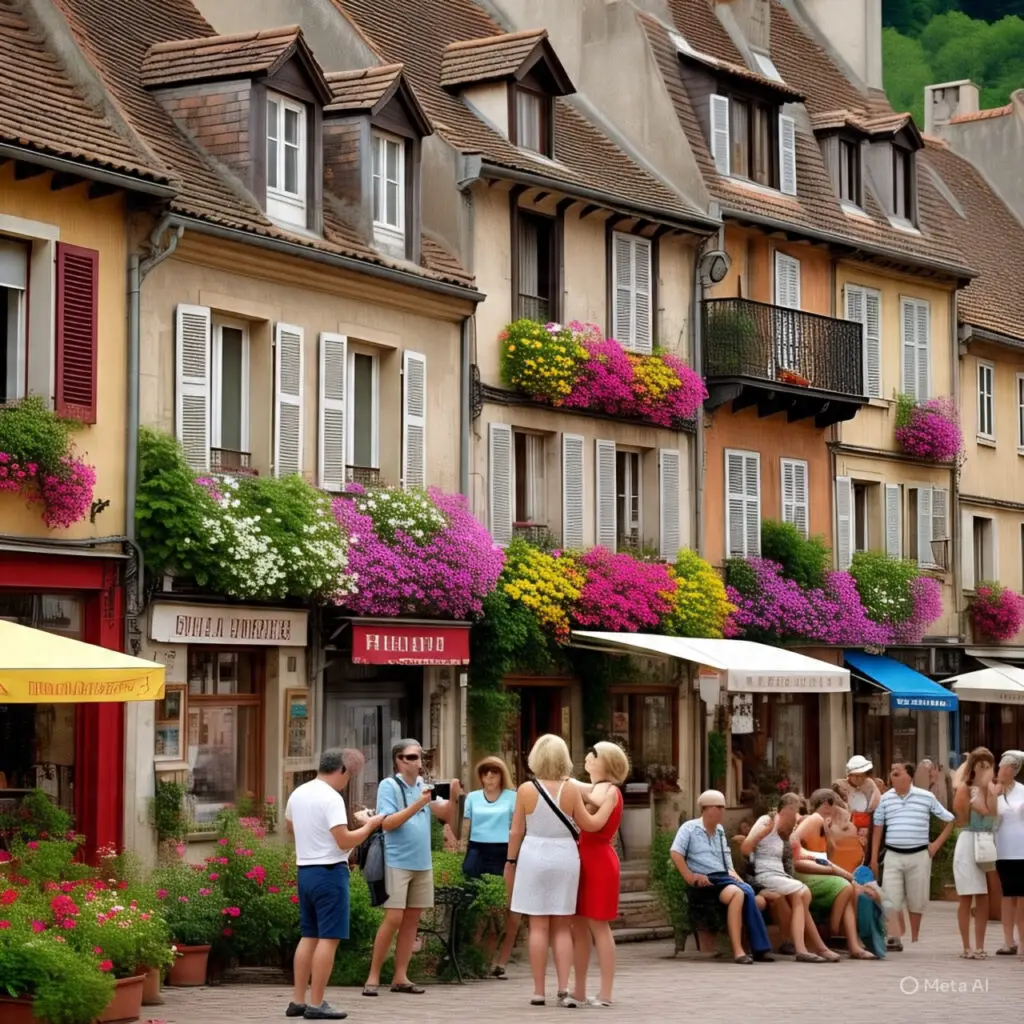Introduction
France isn’t just a country; it’s a feeling. With its timeless elegance, rich history, world-famous cuisine, and stunning landscapes, France is a dream destination for travelers from around the world. From the romance of Paris to the sunny beaches of the French Riviera, the vineyards of Bordeaux to the snowy Alps, France offers something for every kind of traveler.
If you’re planning your next trip or just dreaming about it, this complete France travel blog will guide you through everything you need to know.

1. Why Travel to France?
France is one of the most visited countries on Earth—and for good reason:
- World-class art and architecture
- Culinary experiences like no other
- Scenic countryside, coasts, and mountains
- Deep cultural roots and historical landmarks
- Stylish cities and quaint villages
2. Best Time to Visit France
- Spring (April–June): Pleasant weather, blooming gardens, fewer crowds
- Summer (July–August): Festival season, perfect for beaches, but busy
- Fall (September–October): Wine harvest, cooler temps, beautiful autumn colors
- Winter (November–March): Skiing in the Alps, Christmas markets, fewer tourists
3. Top Places to Visit in France
Paris – The City of Light
- Eiffel Tower
- Louvre Museum
- Notre-Dame Cathedral
- Montmartre & Sacré-Cœur
- Champs-Élysées & Arc de Triomphe
Tip: Walk as much as you can—it’s the best way to enjoy Parisian streets.
French Riviera – Côte d’Azur
- Nice: Seaside charm and art museums
- Cannes: Glamorous beaches and film festivals
- Monaco: Luxury and high-speed thrills
- Saint-Tropez: Chic beaches and boutiques
Perfect for sun-seekers and luxury lovers.
Loire Valley – Castles & Vineyards
Known as the “Garden of France”, it’s home to fairytale châteaux like:
- Château de Chambord
- Château de Chenonceau
- Château de Blois
Also ideal for wine tasting and bike tours.
Provence – Lavender Fields & Hilltop Villages
- Visit Gordes, Roussillon, and Aix-en-Provence
- Explore lavender fields in July
- Savor rosé wine and local cheese
A peaceful and romantic destination.
French Alps – For Nature & Skiing
- Chamonix: At the foot of Mont Blanc
- Annecy: The “Venice of the Alps”
- Grenoble: A mix of history and winter sports
Great for hiking, skiing, and breathtaking views.
Normandy & Brittany – Rugged Coastlines & History
- Mont-Saint-Michel: A magical tidal island
- D-Day Beaches: WWII memorial sites
- Saint-Malo: Walled seaside town
- Etretat: Famous white cliffs
Perfect for history buffs and coastal explorers.
4. French Food & Wine – A Culinary Journey
France is the ultimate foodie paradise. Don’t miss:
Must-Try French Dishes
- Croissants & Baguettes
- Coq au vin
- Beef Bourguignon
- Ratatouille
- Crepes (sweet and savory)
World-Famous French Wines
- Bordeaux: Full-bodied reds
- Champagne: Sparkling excellence
- Burgundy: Elegant Pinot Noir and Chardonnay
- Loire Valley: Crisp whites and floral rosés
5. French Culture & Etiquette
- Always say “Bonjour” when entering shops or restaurants
- Dress smartly – the French love style
- Don’t rush meals – enjoy and savor
- Tipping is appreciated but not expected (service is included)
- Learn a few basic phrases – even just “Merci” goes a long way
6. How to Travel Around France
- Train: France has an excellent rail network (TGV = high-speed trains)
- Car: Best for exploring rural areas and wine regions
- Metro/Bus: Efficient in big cities
- Flights: Great for longer distances like Paris to Nice or Marseille
Get a Eurail Pass or book train tickets in advance for discounts.
7. Budget Tips for France Travel
- Use local bakeries and markets for meals
- Stay in budget hotels or charming B&Bs (called Chambres d’Hôtes)
- Visit museums on the first Sunday of the month (free entry!)
- Walk or cycle to explore cities
- Use Navigo passes or city cards for metro and attractions
8. Unique Experiences in France
- Take a Seine River cruise at sunset
- Spend a night in a castle or countryside manor
- Join a wine-tasting workshop in Bordeaux
- Explore local markets for souvenirs and snacks
- Watch the Tour de France or join a village festival
9. Safety and Travel Tips
- France is generally safe, but stay alert in crowded tourist areas
- Keep an eye on your belongings (especially in Paris)
- Most French people understand basic English, but a few French phrases help
- Tap water is safe to drink
- Carry a universal adapter for charging electronics
10. Souvenirs to Bring Home
- French wine or champagne
- Macarons or local chocolates
- Lavender products from Provence
- Perfume from Grasse
- Cheese (vacuum-packed) or truffle oil
Conclusion
France is a destination that speaks to the heart—romantic, artistic, flavorful, and unforgettable. Whether you want to explore medieval villages, sip wine in sunlit vineyards, or simply get lost in the streets of Paris, France invites you to live la belle vie (the beautiful life). Pack your bags, brush up on your “Bonjour,” and get ready to fall in love with France.
FAQs
1. Is France expensive to travel?
It can be, especially in Paris and during summer, but there are plenty of budget-friendly options too.
2. Do I need a visa to travel to France?
It depends on your nationality. Many travelers can visit for up to 90 days visa-free. Check your country’s entry requirements.
3. What is the best way to explore France?
By train or rental car, depending on whether you’re visiting cities or countryside.
4. Are credit cards widely accepted in France?
Yes, but always carry a bit of cash, especially in small towns or markets.
5. What is the emergency number in France?
Dial 112 for emergencies (works across the EU).